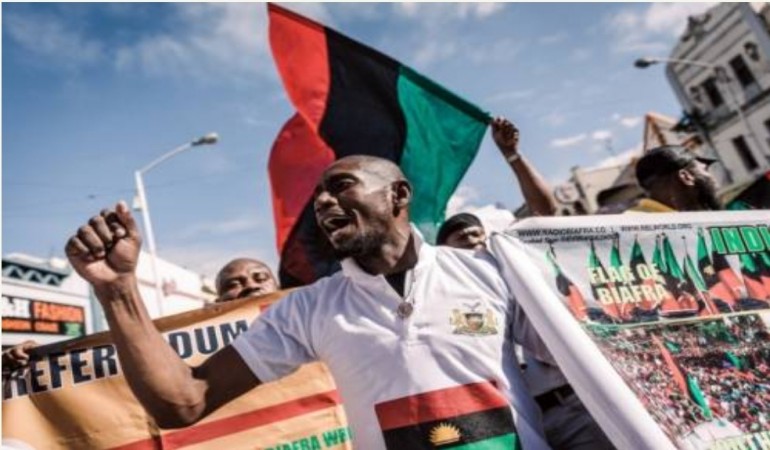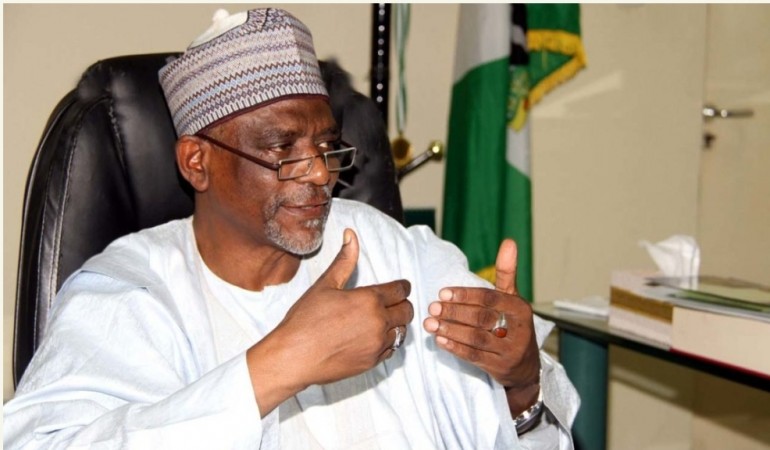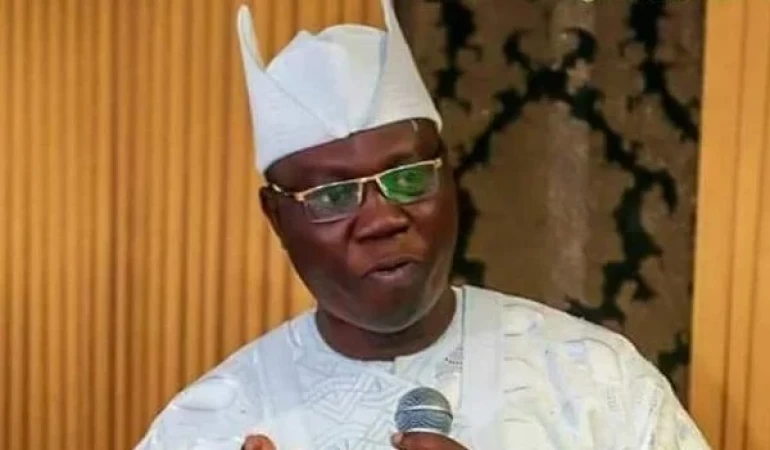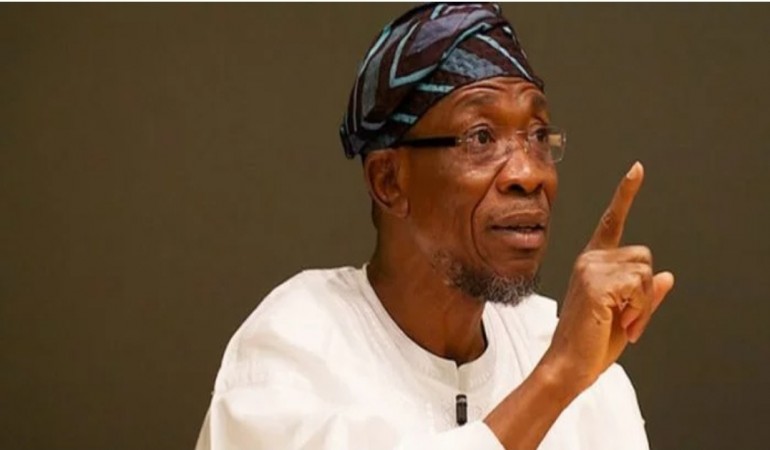Ex-colombian Soldiers, US Bodyguard Involved In Moise's Assassination
Retired Colombian soldiers are suspected of participating in the hit squad that murdered Haitian President Jovenel Moise, while investigators try to find who ordered the killing that plunged one of the world’s most turbulent nations deeper into chaos.
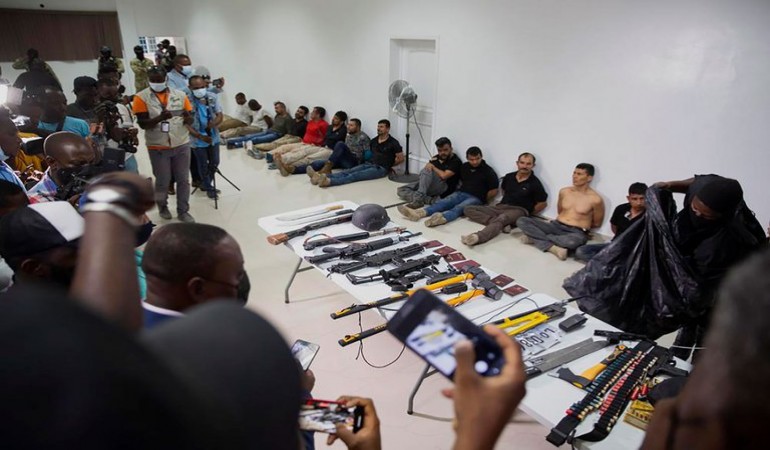
Colombia received an official request Thursday from the international police agency Interpol for information about the suspected perpetrators of the slaying, and pledged to cooperate, Defense Minister Diego Molano said late Thursday.
Haitian police said 28 people carried out the attack against the president, 26 of them Colombians and two U.S. citizens of Haitian descent. The group stormed Moise’s official residence early Wednesday in the first killing of a Haitian head of state in more than a century.
On Thursday, Haiti Police Chief Leon Charles said they had captured "the physical culprits” of the crime, and “we are now hunting down the intellectual culprits.”
Haiti’s National Police said they had arrested 15 men including 13 Colombians and the two Haitian-Americans. They also confirmed that they had killed four Colombian suspects and asked for public support in finding nine others.
Police presented the men, sitting on the floor with their hands bound behind their backs to reporters. They also showed a cache of automatic weapons, machetes, sledgehammers, radios and what appeared to be Colombian passports that they said they had captured from the group. The local Le Nouvellitste newspaper said officials had also recovered the hard drive that stored security footage at Moise’s residence and his checkbook.
Taiwanese Embassy
Eleven of the armed suspects were caught on the grounds of the Taiwanese Embassy in the Port-au-Prince suburb of Petion-Ville, the Taiwanese Ministry of Foreign Affairs said Friday. The ministry said the embassy suffered no property loss and urged diplomatic staff to increase security in Haiti, which is one of 15 states that maintain relations with Taipei rather than Beijing.
Colombian troops are considered among the world’s toughest after having fought against local guerrillas in jungles and mountains for more than five decades. Soldiers are sometimes tempted to quit the army for the prospect of earning more money working as contractors in the Middle East and elsewhere.
Two Americans arrested in connection with the assassination of President Jovenel Moïse of Haiti this week said that they were not in the room when he was killed and that they had worked only as translators for the hit squad, a Haitian judge said on Friday.
Clément Noël, a judge who is involved with the investigation and who interviewed both men soon after their arrest, said that neither was injured in the assault.
One of the Americans was identified as James J. Solages, a U.S. citizen who lived in South Florida and previously worked as a security guard at the Canadian Embassy in Haiti. The other was identified as Joseph Vincent, 55.
Judge Noël, speaking by telephone, said that he could not provide details on the wider plot or a possible motive, but said the two Americans maintained that the plot had been planned intensively for a month.
The Americans, he said, would meet with other members of the squad at an upscale hotel in Pétionville, a suburb of Port-au-Prince, Haiti’s capital, to plan the attack. He said they had relayed that the goal was not to kill the president but to bring him to the national palace.
Mr. Moïse was shot dead in his private residence on the outskirts of the capital around 1 a.m. on Wednesday, his body riddled with bullets.
Judge Noël said the Americans had been taken into custody after a shootout with police that resulted in the death of two Colombians.
When they were taken into custody, they had in their possession weapons, clothes, food and other paraphernalia used in the assault.
Judge Noël said that it was Mr. Solages who had yelled that the assailants were agents of the U.S. Drug Enforcement Agency over a loudspeaker at the start of the assault.
Mr. Vincent said he had been in the country for six months and that he had been staying with a cousin. Mr. Solages said he had been in Haiti for a month.
The men said the Colombians involved in the plot had been in the country for about three months.
All that Mr. Vincent would say about the broader plot was that the mastermind was a foreigner named “Mike” who spoke Spanish and English. Mr. Solages said that he had found the job to translate for the hit squad in a listing posted online. They would not say how much they had been paid.
Judge Noël said Mr. Solages had “replied in a very evasive manner.”
As the Haitian security forces continued to hunt for suspects in Mr. Moïse’s assassination, the interview offered the clues into who carried out the operation. Most of those in custody are Colombian, the authorities say, and include retired members of the military.
The body of another mercenary was found on Thursday around 10 a.m., on the roof of a private residence in Pétionville. The man, presumed a Colombian, was hit by a single bullet in his left side and killed, despite the fact he was wearing a bulletproof vest, said a justice of the peace, Phidélito Dieudonné. The man had climbed the security wall of the home, and then used a ladder to get up on the roof, Mr. Dieudonné said. He had no firearm or identity documents on him, but a couple of license plates had been dropped to the courtyard.
“They were all wearing the same boots,” said Justice Dieudonné.
At a news conference announcing the arrests on Thursday, the authorities had singled out the Americans as they sat on the floor with their hands handcuffed behind their backs. It was not clear what evidence the Haitian authorities had against the two men, when they had entered the country and what their connection might be to those identified as Colombian.
Mr. Solages, 35, is a native of Jacmel, a city in southern Haiti, and lived in Broward County, the Florida county that includes Fort Lauderdale. He was the president of a small charity organization that said it focused on giving grants to women in his home city. But federal tax records show that he claimed to work 60 hours a week on an organization that in 2019 took in just over $11,000.
The organization, Jacmel First, says that its primary objective is reducing poverty and promoting education and better health systems in Haiti. His biography on his website said that he was a consultant, building engineer and “certified diplomatic agent.”
He also claimed to be chief commander of the bodyguards for the Canadian Embassy in Haiti. A Canadian government official said that Mr. Solages was briefly a reserve officer for a security company that had a contract to protect the embassy in 2010.
By the end of Thursday, as photographs of Mr. Solages in custody in Haiti circulated online, the charity group’s website had been taken down. So was a Facebook page that showed Mr. Solages in sharp suits.
Asked about the president’s murder and Mr. Solages’s arrest, Jean Milot Berquin, of Jacmel First’s board members, said, “I’m so sorry about that,” and declined to comment further.
While the biography on Mr. Solages’s charity website paints him as a professional and politician, his LinkedIn profile lists an entirely different set of jobs that sound more like maintenance positions.
His online résumé says that he has an associate degree from a technical college and is a plant operations director at a senior living facility in Lantana, Fla. (Company officials did not respond to requests for comment.)
State corporation records show that he owns maintenance company whose address was the same as the charity’s: a second-floor office above a restaurant in a strip mall. The office is now occupied by someone else.
Mr. Solages’s Twitter account, which has been dormant for over a year, includes inspirational quotes like “Don’t let nobody tell you that you are aiming too high or expecting too much of yourself, with both Mars, your ruler, and the Sun about to move to your favor, you should in fact expecting more of yourself then (sic) ever before.”
